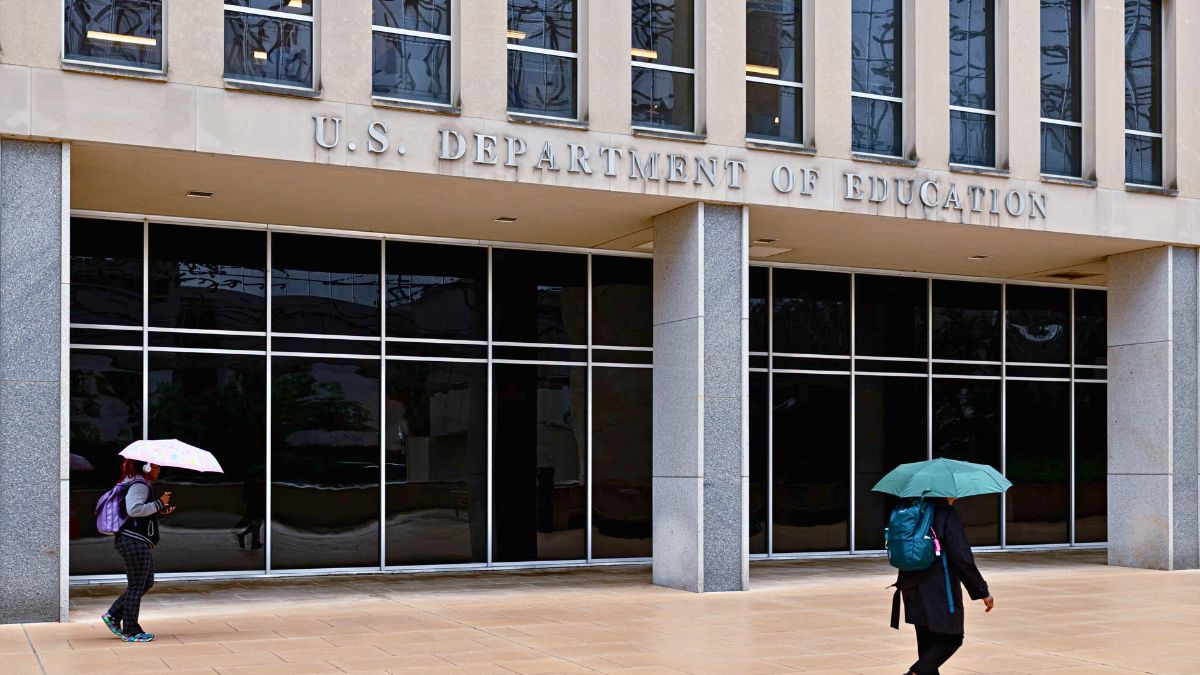Several Northern Virginia school districts have decided to stand their ground against a U.S. Department of Education directive, refusing to change their current bathroom policies. These districts argue that their practices, which allow students to use facilities that align with their gender identity, are consistent with both state and federal law. But the federal government doesn’t see it that way—and now there’s talk of cutting funds.
Defiance
Fairfax, Arlington, Prince William, Alexandria, and Loudoun County school districts have all taken a firm stance. They’ve refused the Education Department’s request to alter their policies by the August 16 deadline. The request came from the department’s Office for Civil Rights (OCR), which claims that allowing students to use bathrooms based on gender identity, rather than biological sex, violates Title IX.
Despite this claim, the districts argue the opposite. They say their current policies are legal under Virginia state law and protected by previous federal court rulings.
Justification
Each district gave its reasons. Arlington Public Schools leaned on the Virginia Values Act, which bans discrimination based on gender identity. Prince William County Schools referenced a federal court case—Grimm v. Gloucester County School Board—where the court sided with a transgender student in a similar situation. These legal anchors are key in defending the districts’ current practices.
The chair of the Prince William County School Board, Babur Lateef, even stated that they’ve communicated their disagreement directly to the Department of Education. He expressed openness to further dialogue but firmly denied that the department’s interpretation of Title IX applies in this case.
Consequences
The Education Department has now moved to the next step—potentially pulling federal funding. Madi Biedermann, a spokesperson for the department, stated that the affected school divisions may face suspension or termination of federal financial support. The message is clear: comply or risk losing funds.
But here’s where it gets complicated. Lateef claims that his district doesn’t receive Title IX-specific funding, which limits the federal government’s leverage. If no funds are tied directly to Title IX, then there’s not much to pull. This creates a legal gray area and could end up in court.
Reactions
Fairfax County Public Schools requested that the OCR stop further action and refused to sign the department’s proposed resolution agreement. They emphasized their commitment to creating an inclusive environment for all students, including those who are transgender or gender-expansive.
Their statement also made clear that any student, for any reason, can ask for increased privacy, and that those accommodations will continue. In short, the district believes they’re already doing what’s right—both legally and morally.
Legalities
The core of the conflict lies in how Title IX is interpreted. The federal government says it’s about biological sex; these Virginia districts argue that gender identity fits within its protections. Here’s a quick comparison:
| Issue | Federal View (DOE) | Virginia Districts’ View |
|---|---|---|
| Title IX Scope | Based on biological sex only | Includes gender identity |
| Legal Support | Department of Education | State laws, Grimm v. Gloucester |
| Consequences of Non-Compliance | Funding suspension possible | Claim no relevant funds at stake |
Fallout
It’s not just about bathroom policies—it’s about a broader fight over gender identity, states’ rights, and federal control in education. With school already in session or starting soon, many parents, students, and educators are waiting to see if the federal government will actually follow through on the funding threats or take legal action.
At the same time, the districts are showing no sign of backing down. If anything, their unified stance signals a potential legal showdown that could reshape how Title IX is interpreted in public schools moving forward.
This situation is far from over, and it may take a courtroom—not a classroom—to resolve it.
FAQs
Why won’t Virginia districts change policies?
They believe their bathroom policies comply with state and federal law.
What does DOE say about the policies?
The DOE says they violate Title IX by ignoring biological sex.
Will federal funds be cut?
The DOE has started the process to suspend federal aid.
What legal case do schools cite?
They cite Grimm v. Gloucester County as legal backing.
Is a court battle likely?
Yes, the disagreement may end up in federal court.




